What are the disadvantages of Costa Rica residency? We Explain
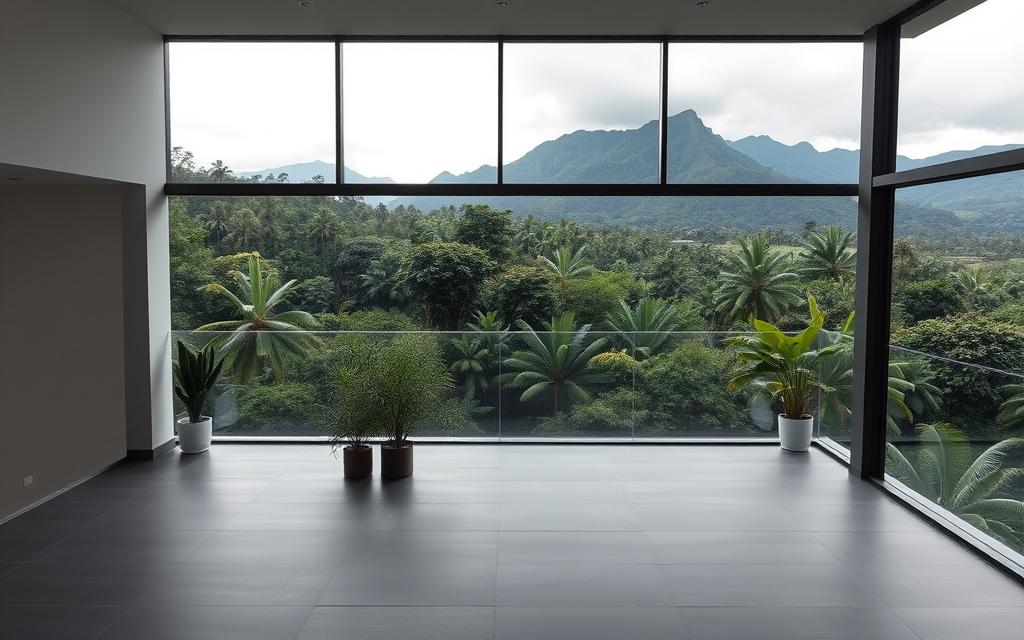
Costa Rica has become a magnet for individuals and families seeking a better quality of life and new opportunities. With its breathtaking natural beauty, mild climate, and rich culture, this Central American country has positioned itself as a top destination for those looking to settle permanently or temporarily.
Approximately 70,000 Americans and 3,500 Canadians have already made Costa Rica their home, drawn by the country's unique "Pura Vida" lifestyle. However, obtaining residency in Costa Rica can be a complex process.
We will explore the often-overlooked disadvantages of obtaining residency in Costa Rica, providing a balanced view beyond the "Pura Vida" marketing. Our goal is to provide honest insights about Costa Rica residency, helping potential residents understand the challenges they may face.
The Reality Behind Costa Rica's "Pura Vida"
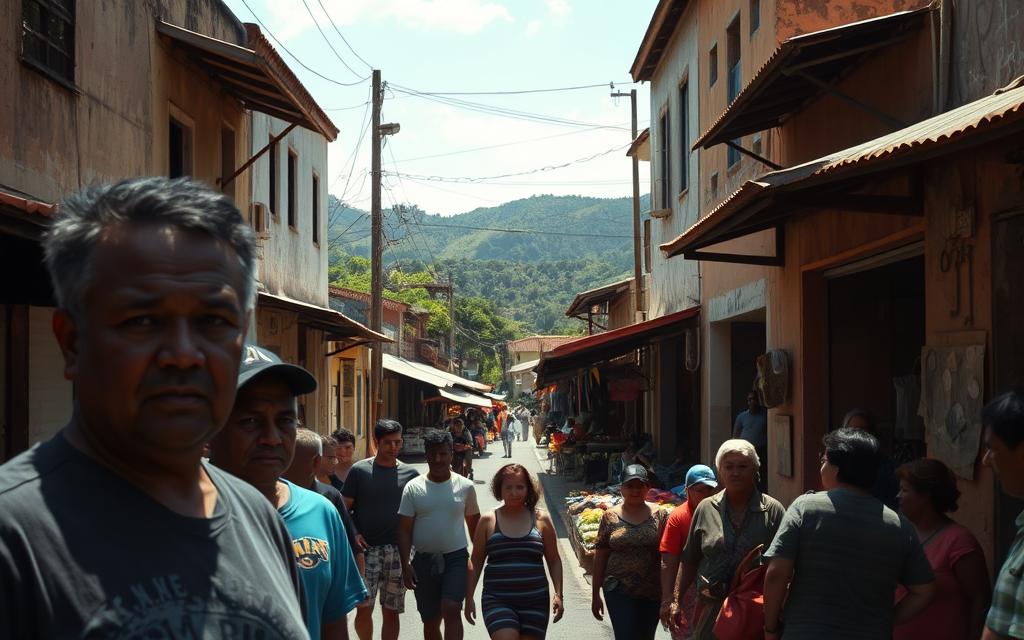
Beneath the surface of Costa Rica's idyllic "Pura Vida" lies a complex reality that expats must navigate. The "Pura Vida" lifestyle is centered around appreciating life's simple things and finding joy in everyday moments.
Why Expats Choose Costa Rica
Expats are drawn to Costa Rica for its natural beauty, pleasant climate, and cultural philosophy that prioritizes well-being and community. The concept of "Pura Vida" resonates with individuals seeking a more relaxed and fulfilling life in Costa Rica. By embracing this philosophy, individuals can cultivate a more relaxed lifestyle.
The Gap Between Expectations and Reality
Many newcomers arrive with idealized expectations of Costa Rica, only to face unexpected challenges. The "Pura Vida" lifestyle often masks day-to-day frustrations, such as navigating bureaucracy and infrastructure limitations. Expats must adapt to a slower pace of life and different attitudes toward time and customer service, making the experience of living in Costa Rica both rewarding and challenging.
Navigating the Complex Residency Process
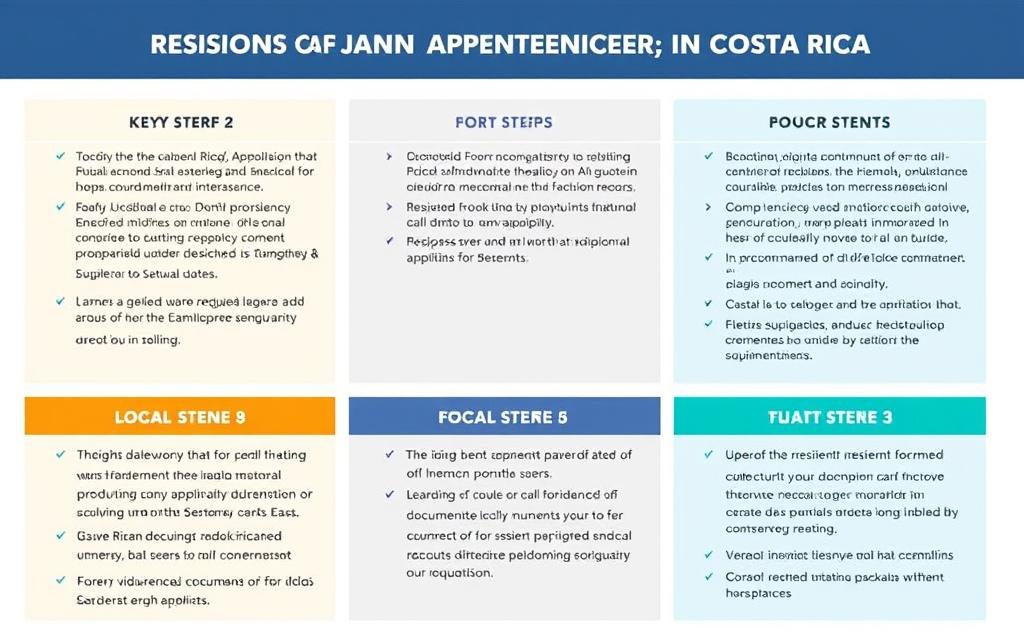
The journey to obtaining residency in Costa Rica is often more complex than anticipated. The official processing time for Costa Rica residency applications is typically quoted as 3-6 months. However, the reality is that most applications take 12-14 months or longer to complete.
Why 80% of Applications Get Rejected
Multiple factors contribute to the high rejection rate of residency applications. Common issues include incomplete documentation, failure to meet the required income thresholds, and errors in the application process. Ensuring that all documents are correctly authenticated and translated is crucial.
The Actual Timeline: 12-14 Months vs. "Official" 3-6 Months
The extended timeline for residency processing creates challenges for applicants. They must maintain legal status in Costa Rica throughout the waiting period, often requiring multiple border runs or extensions to tourist visas. Planning for these delays is essential, as is creating a realistic timeline with buffer periods for unexpected delays.
The residency process involves multiple steps, including document collection and authentication in your home country, submission to Costa Rican authorities, biometric data collection, and enrollment in the Costa Rican healthcare system. Backlogs at immigration offices and staffing limitations can significantly extend processing times beyond what is officially stated.
Documentation Nightmares and Bureaucratic Hurdles

For those seeking residency in Costa Rica, the documentation process can be a significant source of frustration. The complexity of gathering, authenticating, and translating documents is often underestimated, leading to unnecessary delays and expenses.
Required Documentation and Authentication Challenges
One of the primary challenges in the Costa Rica residency process is compiling the necessary documentation. Applicants must gather various documents, including birth certificates, marriage certificates, financial statements, and police records, and then authenticate them according to Costa Rican regulations.
The authentication process involves obtaining apostilles or certifications from the relevant authorities in the applicant's home country. This step can be time-consuming and requires a thorough understanding of the specific requirements for Costa Rica.
Translation Requirements and Common Mistakes
Translation issues are another common problem. All documents must be professionally translated into Spanish by a certified translator recognized by the Costa Rican authorities. Using non-certified translators or online translation services can result in rejected documents, wasting time and money.
Common translation mistakes include using non-certified translators, online translation services, or translations that don't precisely match the format and content of the original documents. Technical terms, especially in financial and legal documents, must be accurately translated according to Costa Rican legal terminology, not just literal translations.
Many applicants underestimate the cost and time required for proper translations, which can add significantly to the overall expense of the residency process. Rejected translations mean starting over with that document, potentially causing the original document to expire during the delay, creating a frustrating cycle of resubmission.
Financial Disadvantages of Costa Rica Residency

While Costa Rica offers an attractive lifestyle, the financial implications of obtaining residency can be significant. The country's residency program is designed to attract foreign investment, but it comes with strict financial requirements.
Strict Income Verification Requirements
For Rentista applicants, proving a monthly income of $2,500 for two years is a significant hurdle. Alternatively, depositing $60,000 in a Costa Rican bank with specific restrictions on usage can be challenging. This requirement can strain financial resources, especially for those with variable incomes.
Banking Challenges and Currency Exchange Issues
Residency applicants often face significant banking challenges in Costa Rica, including difficulties opening accounts without residency status. Many banks require a local sponsor, extensive documentation, and in-person visits, complicating the process. Furthermore, currency exchange issues can impact residents who receive income in foreign currencies, as fluctuations in exchange rates affect purchasing power. Wire transfer fees and international ATM withdrawal charges can also erode financial resources.
Navigating Costa Rica's financial reporting requirements is also crucial, as residents must declare foreign accounts and income to avoid potential penalties. The financial disadvantages of Costa Rica residency highlight the need for careful financial planning for those considering this path.
What are the Disadvantages of Costa Rica Residency?
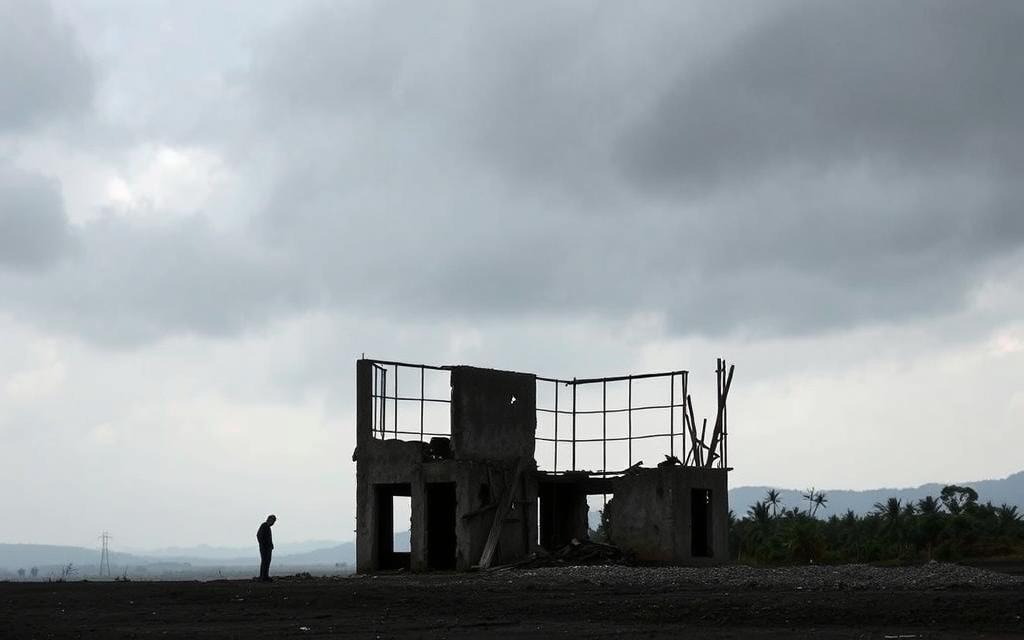
When considering Costa Rica residency, it's crucial to understand the legal and employment implications. Costa Rica has become a popular destination for expats, but like any country, it has its drawbacks. Understanding these disadvantages is key to making an informed decision.
Legal Limitations for Different Residency Categories
Costa Rica offers various residency categories, each with its own set of legal limitations. For instance, Pensionados and Rentistas are technically not allowed to work as employees in Costa Rica, although they can own businesses and receive investment income. This restriction can be a significant disadvantage for those who are not fully retired or wish to continue working.
In contrast, Inversionista residents can work within their investment business, providing more flexibility. However, Digital Nomad visa holders are permitted to work remotely for foreign companies but are prohibited from employment with Costa Rican businesses or clients.
Work Restrictions and Employment Challenges
Work restrictions represent one of the most significant disadvantages of Costa Rica residency for many applicants. Even after obtaining permanent residency, foreign residents face challenges in the job market, including lower wages compared to similar positions in North America and Europe. Language barriers can further limit employment opportunities, as most professional positions require fluent Spanish.
While self-employment and entrepreneurship options exist, they require navigating complex business registration processes, tax obligations, and regulatory requirements that differ significantly from North American systems. This complexity can deter some from pursuing business ventures in Costa Rica.
In conclusion, while Costa Rica residency offers many benefits, it's essential to be aware of the legal limitations and work restrictions associated with different residency categories. Understanding these disadvantages can help individuals make informed decisions about their residency and employment options in Costa Rica.
Residency Category-Specific Challenges

The path to residency in Costa Rica varies significantly depending on the category, each with its own set of challenges. Applicants must navigate through category-specific requirements and hurdles to achieve their goal of becoming residents.
Pensionado: Pension Verification Problems
Pensionado applicants often face difficulties in verifying their pension income. The process requires thorough documentation, including proof of pension payments and authentication from relevant authorities. Ensuring that all documents are in order is crucial to avoid delays or rejections.
Rentista: Proving Stable Income
For Rentista applicants, demonstrating a stable income is paramount. This involves providing financial documents that show a consistent income stream, which can be challenging for those with variable incomes. The documentation must be meticulous to meet the requirements.
Inversionista: Investment Pitfalls
Inversionista applicants must invest a minimum of $150,000 in a Costa Rican business or real estate. Common pitfalls include purchasing properties with unclear titles or failing to conduct proper due diligence. Business investments also face challenges such as complex regulatory requirements and labor laws.
To successfully navigate these challenges, applicants must be aware of the potential pitfalls and take steps to mitigate them. This includes thorough research, proper documentation, and sometimes seeking professional advice to ensure compliance with Costa Rica's residency requirements.
Cost of Living Realities in Costa Rica
Moving to Costa Rica can be a thrilling adventure, but understanding the true cost of living is crucial for a smooth transition. While the "Pura Vida" lifestyle is a significant draw for many expats, the financial realities of living in Costa Rica can be surprising.
Unexpected Expenses for New Residents
New residents often encounter unexpected expenses that can strain their budget. For instance, the cost of imported goods is significantly higher in Costa Rica due to the country's high import taxes. This can be particularly challenging for those who are accustomed to a certain standard of living that relies on imported products.
To mitigate these costs, it's essential to adapt to local consumption habits and explore alternatives to imported goods. However, this adjustment can take time, and the initial expenses can be a financial strain.
High Import Taxes and Vehicle Costs
The government of Costa Rica imposes some of the highest import taxes in the region, which significantly impacts the cost of living. Vehicles, in particular, are affected, with import taxes adding 50-100% to the price of a car compared to North American markets. For example, a vehicle that costs $20,000 in the United States might cost $30,000-$40,000 in Costa Rica due to these taxes.
For those considering residency in Costa Rica, understanding these costs is crucial for making an informed decision. The high import taxes on electronics, appliances, and other consumer goods also contribute to a higher cost of living, making it essential for residents to carefully manage their expenses.
Healthcare Limitations for Residents

For expats moving to Costa Rica, navigating the healthcare system can be complex and challenging. While the country is known for its high-quality medical services, there are significant limitations to be aware of.
Public Healthcare (CAJA) Challenges
The public healthcare system, known as CAJA, provides comprehensive coverage, but it can be slow and bureaucratic. Many residents choose to supplement CAJA with private healthcare options, which provide faster access and more personalized service.
However, relying solely on CAJA can result in longer wait times for non-emergency procedures and limited access to specialized care.
Private Insurance Requirements and Costs
During the residency application process, applicants must maintain private health insurance that meets specific requirements, including a minimum coverage of $50,000 for medical expenses. Private health insurance in Costa Rica typically costs between $60 and $250 monthly per person, depending on age and coverage level.
Age restrictions can be problematic, as many local private insurance plans have upper age limits or significantly higher premiums for older applicants. Additionally, pre-existing conditions may be excluded from coverage or result in higher premiums, creating challenges for those with chronic health conditions.
Understanding these healthcare limitations is crucial for expats to make informed decisions about their health insurance and medical care in Costa Rica.
Property Ownership Misconceptions
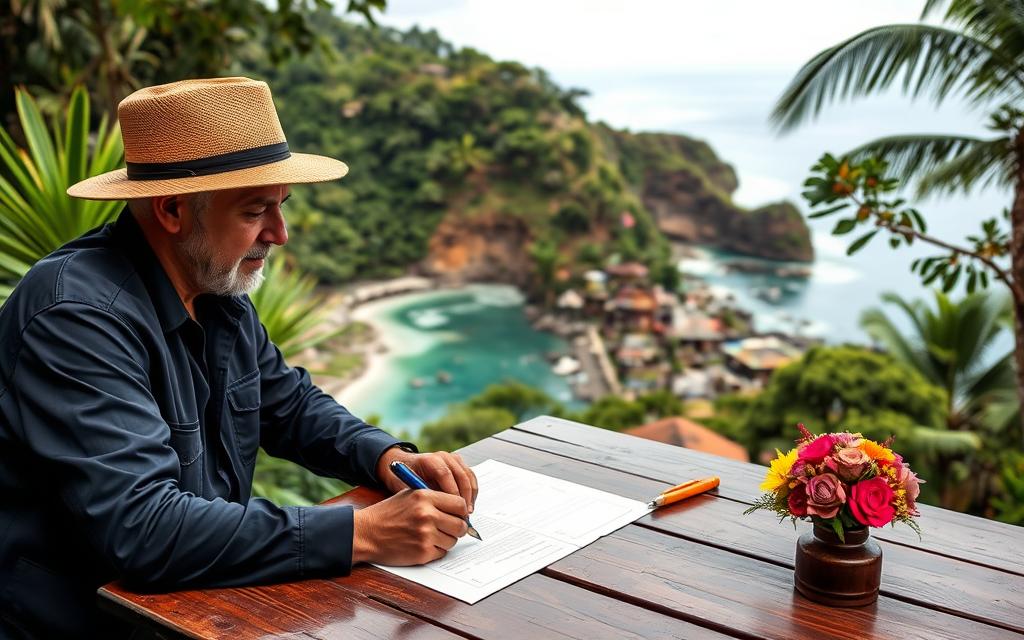
The notion that purchasing real estate in Costa Rica qualifies one for residency is a common misconception among expats. Many individuals assume that buying property automatically grants them residency, but this is not the case.
Legal Considerations for Foreign Property Buyers
To qualify for residency under the Investor visa category, the investment must meet specific legal criteria. A minimum investment of $150,000 in real estate is required, and it must be properly structured and documented. We frequently encounter the misconception that simply purchasing property in Costa Rica automatically qualifies buyers for residency.
Why Property Investment Doesn't Guarantee Residency
Property investment only qualifies for residency under the Inversionista category, which requires a minimum investment of $150,000 in qualifying real estate or business ventures. The investment must be properly structured and documented specifically for residency purposes, not just as a standard property purchase. For more information on successful investor visa applications, visit our success stories page.
Cultural and Lifestyle Adjustment Struggles
Adjusting to life in Costa Rica can be a challenging experience for expats due to cultural and lifestyle differences. The "Pura Vida" mindset significantly impacts daily life, from business practices to social interactions, adopting a more relaxed attitude towards time and efficiency.
Language Barriers and Integration Challenges
One of the primary challenges expats face is overcoming language barriers. While many Costa Ricans speak some English, not speaking Spanish can limit one's ability to fully integrate into the local culture and community. Language barriers can lead to feelings of isolation and make everyday tasks more complicated.
Adapting to Different Business Practices and Timeframes
Costa Rica's business practices and timeframes differ significantly from those in North America. The "mañana" approach to scheduling and deadlines can be frustrating for those accustomed to strict punctuality and efficiency. Business relationships are built on personal connections and trust, requiring patience and relationship-building before transactions can occur. Government offices and services also operate at a slower pace, with processes taking longer than expected. Adapting to these differences requires a fundamental shift in expectations and patience.
Legal System Differences That Catch Expats Off-Guard
Costa Rica's legal system, based on Napoleonic law, presents distinct differences that can catch expats off guard. Unlike Common Law countries where judicial decisions are a primary source of law, Costa Rica's system relies heavily on written codes and formal documentation.
Napoleonic vs. Common Law: Key Differences
The main difference between Napoleonic and Common Law lies in their approaches to legal matters. Napoleonic law, followed by Costa Rica, emphasizes comprehensive legal codes, whereas Common Law gives significant weight to judicial precedents. This fundamental difference can lead to misunderstandings among expats from Common Law countries, particularly regarding the importance of written contracts and documentation.
How Legal Misunderstandings Lead to Costly Mistakes
Legal misunderstandings can result in costly mistakes for expats in Costa Rica. For instance, verbal agreements that are enforceable in some Common Law countries have no legal standing in Costa Rica without proper documentation. Moreover, not utilizing notaries for important transactions can lead to significant issues, as notaries in Costa Rica have greater legal authority than in many North American countries. Working with legal professionals who understand both systems is crucial for avoiding these costly misunderstandings.
Conclusion: Balancing the Disadvantages with Costa Rica's Benefits
With its unique blend of natural beauty and relaxed lifestyle, Costa Rica remains a paradise for many, but it's crucial to understand the intricacies of residency. We believe that understanding the disadvantages of Costa Rica residency is essential for making an informed decision about whether it's right for your situation.
Costa Rica offers a variety of residency options, including rentista, investment, and permanent residency, to suit different needs. To thrive here, one must be adaptable and have realistic expectations. For those who can navigate the challenges, Costa Rica offers significant benefits, including a pleasant climate and the opportunity to live the "Pura Vida" lifestyle. For more information on the benefits, visit Jaros CR.


